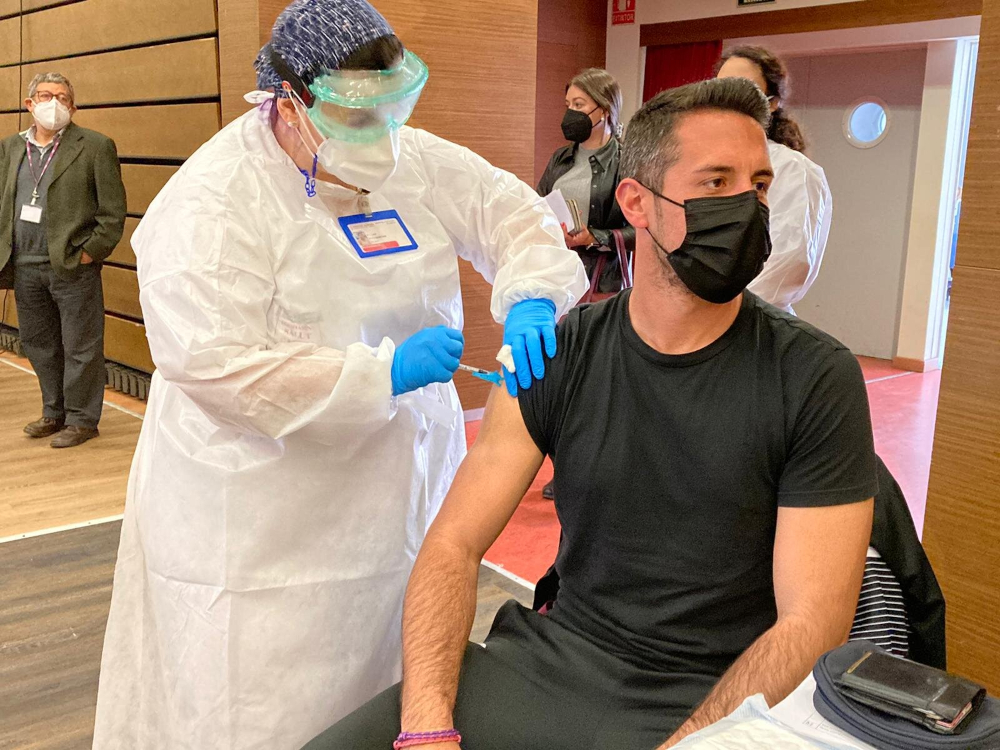Valencia health reminds all citizens, including those vaccinated, that measures must still be observed
How does receiving the vaccine change your day to day life? Can you start lead a normal life? The answer is resounding: No.

PHOTO CREDIT: Generalitat Valenciana
Thursday 22nd April 2021 – PRESS RELEASE with Mike Smith
The Comunidad Valenciana has administered more than 1.3 million doses of the coronavirus vaccine, with one in five Valencians over the age of 18 having received at least one dose and just over 335,000 completed the required two-dose course, most being administered to the elderly and most exposed professional groups.
How does receiving the vaccine change your day to day life? Can you start lead a normal life? The answer is resounding: No. Those who have been vaccinated, even if they have received the two doses recommended by the laboratories to reach the optimum level of immunity, must continue to wear a mask, maintain a safe distance and maintain hand hygiene, as well as ventilate closed spaces.
“Today, receiving the vaccine does not allow the security measures to be relaxed. Moreover, the standards established by the health authorities are the same at this time for vaccinated and unvaccinated,” says Dr. Salvador Peiró, researcher in the research area in Health Services and Pharmacoepidemiology of Fisabio.
“The clinical trials for the authorization of the different vaccines show that vaccination is effective in reducing cases of symptomatic COVID-19 in all age groups. Even when infected, the risk of developing severe COVID is much lower,” explains Peiró . What’s more, the reported cases of reinfection, he continues, are anecdotal.
Now, he adds, “if vaccinated people relax protection measures (mask, distance, hand hygiene and ventilation) when there are still people waiting to receive their first or second dose, transmission and serious COVID-19 symptoms could increase among the partners, colleagues, friends and close contacts of the vaccinated“.
In addition, vaccination does not begin to be effective until two to three weeks after receiving the first dose and, in courses that require two doses, the optimal level of protection is not reached until two weeks after the second injection. “Until then, and especially in the first two or three weeks after the first dose, people have not generated the antibodies that will protect them from the disease and they must be especially careful,” explains the researcher.
In conclusion, maintaining precautions against the coronavirus, even after having been vaccinated, helps prevent infections in people who have received the two doses and, above all, protects those who are awaiting immunization from becoming ill. Therefore, as the vaccination of the entire population progresses, the fewer people contract the virus, the less likely it is that the most vulnerable groups will come into contact with it, or at least at high viral loads.





